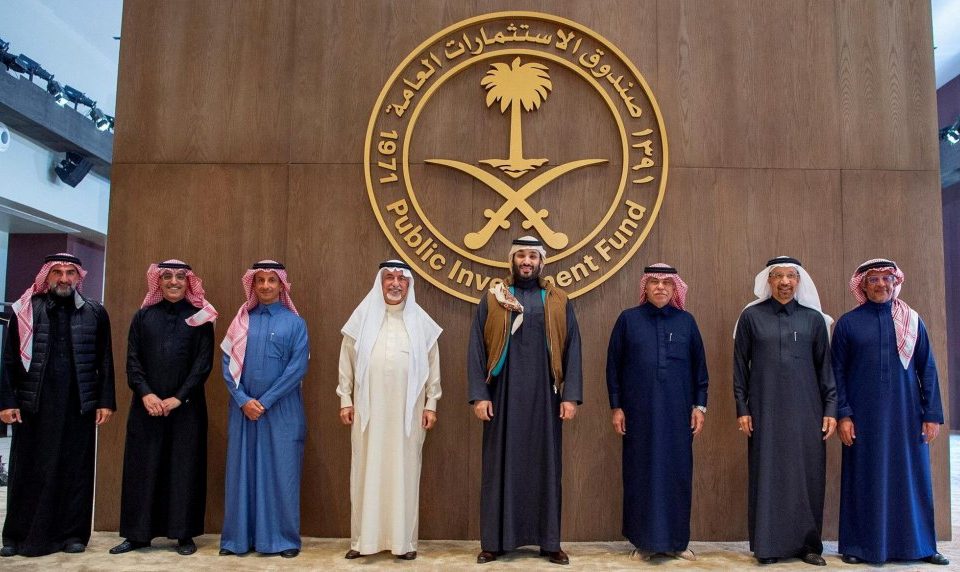Sovereign wealth fuels AI boom as Middle Eastern funds pour billions into the hottest AI startups

The mainstream adoption of artificial intelligence (AI) has skyrocketed since ChatGPT’s launch two years ago. As companies rush to integrate AI into their operations, investors are scrambling to grab a stake in the action. This has led to a significant increase in funding for AI startups, with Middle Eastern sovereign wealth funds stepping up to invest billions in promising and hottest AI startups.
According to CNBC, sovereign wealth funds from Saudi Arabia, the UAE, Kuwait, and Qatar are emerging as key backers of AI-driven Silicon Valley companies. These oil-rich nations are making big bets on AI technology as they look to diversify their economies beyond oil.
The cash flow from these funds is supercharging the growth and innovation of AI startups, driving forward not just individual companies but the entire AI ecosystem. Over the past year, investment from Middle Eastern sovereign wealth funds into AI has surged fivefold, according to Pitchbook data, CNBC reported.
The UAE’s new AI-focused fund, MGX, is among those trying to get in on OpenAI’s latest fundraising round, which could value the company at $150 billion, sources told CNBC.
While most venture funds can’t compete with the massive investments from tech giants like Microsoft and Amazon, sovereign wealth funds have no problem cutting large checks. They invest on behalf of governments, buoyed by recent rises in energy prices. The collective wealth of Gulf Cooperation Council (GCC) nations is expected to rise from $2.7 trillion to $3.5 trillion by 2026, according to Goldman Sachs.
Saudi Arabia’s Public Investment Fund (PIF), valued at over $925 billion, has been on an investment spree as part of Crown Prince Mohammed bin Salman’s Vision 2030 initiative, backing companies like Uber and expanding into sports with LIV Golf and pro soccer.
The UAE’s Mubadala, with $302 billion under management, and the Abu Dhabi Investment Authority, managing $1 trillion, are also major players. Qatar’s fund holds $475 billion, while Kuwait’s has passed $800 billion.
This week, MGX, based in Abu Dhabi, teamed up with BlackRock, Microsoft, and Global Infrastructure Partners to raise as much as $100 billion for AI infrastructure, including data centers. MGX, launched in March, was founded with backing from Mubadala and AI company G42.
Mubadala is also investing in OpenAI rival Anthropic, racking up eight AI deals in the past four years. Interestingly, Anthropic chose to avoid taking Saudi money in its last funding round due to national security concerns, sources told CNBC.
Saudi Arabia’s PIF is in discussions to form a $40 billion partnership with U.S. venture capital firm Andreessen Horowitz and has also launched an AI fund called the Saudi Company for Artificial Intelligence (SCAI).
Still, some Western partners and startups are wary of Saudi Arabia due to its human rights record, particularly in light of the 2018 killing of journalist Jamal Khashoggi.
It’s not just Middle Eastern funds throwing money into AI. France’s sovereign fund Bpifrance has made 161 AI and machine learning deals in the past four years, while Singapore’s Temasek and GIC have completed dozens of AI investments as well.
Investments in AI startups have gone through since the beginning of this year. For example, The New York Times reported that investors funneled $27.1 billion into U.S. AI startups between April and June this year, accounting for almost half of U.S. startup funding for that period. Goldman Sachs predicts global AI investments will hit $200 billion by 2025.
“Funding for A.I. firms made up nearly half the $56 billion in U.S. start-up financing from April to June, according to PitchBook,” The New York Times reported.
The wave of capital has some investors in Silicon Valley worried about a repeat of the SoftBank scenario, where massive funding inflated the valuations of companies like Uber and WeWork before they went public. WeWork later collapsed into bankruptcy after being valued at $47 billion.
For the U.S., having sovereign wealth funds invest in American companies is seen as a better alternative to investments flowing into rival nations like China. Jared Cohen of Goldman Sachs Global Institute pointed out that a significant amount of capital is coming from countries like Saudi Arabia and the UAE, describing them as “geopolitical swing states” with the power to influence markets worldwide.




